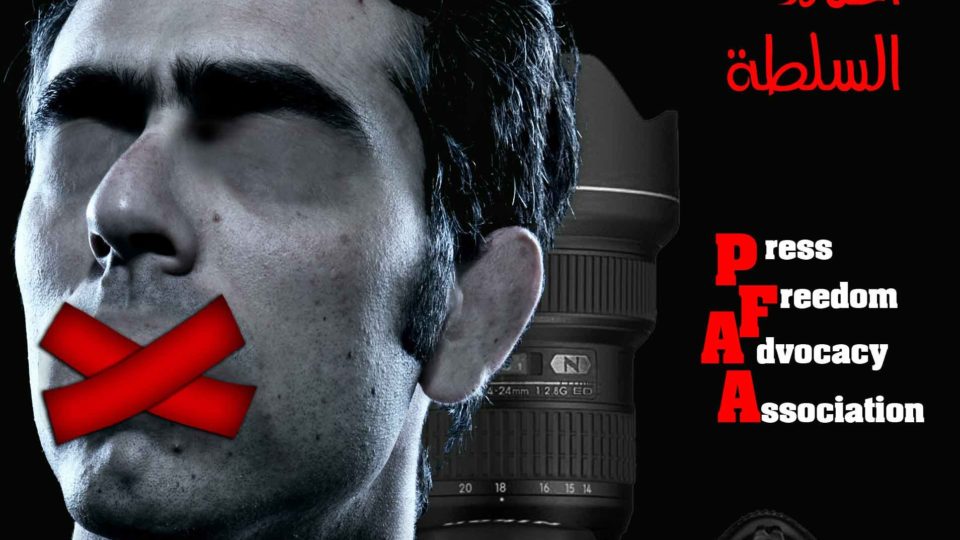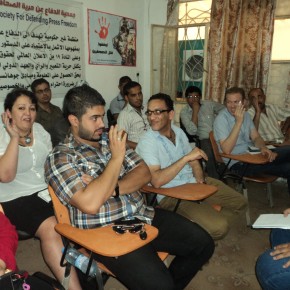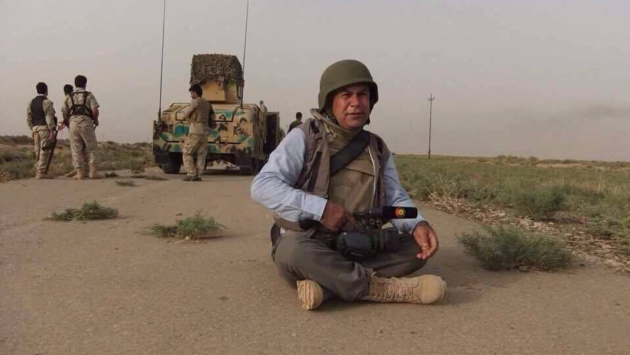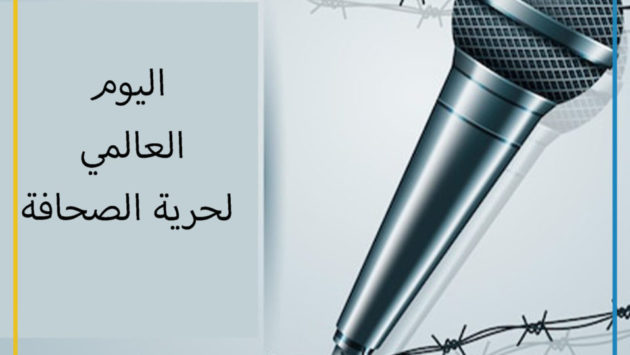Journalists and Members of the Media Agree on Actions to Challenge Laws that Endanger Freedom of Expression and a Free Press in Iraq
Baghdad: 24-6-2012
Many Iraqi journalists and members of the media agreed to work together in order to oppose the so-called “journalists’ rights law” and other laws that threaten a free press and the freedom of expression. Meeting at the Society for Defending Press Freedom headquarters in Baghdad, on Saturday, the journalists discussed the actions and strategies they would undertake in order to increase pressure on government authorities, both executive and legislative. The journalists’ message was clear: they reject all efforts to limit the right of the public and the right of the press and other media concerns to exercise freedom of expression. Members of the media agreed to employ all legal means, including relying upon the Iraqi Constitution and relevant international conventions, especially the Universal Declaration of Human Rights and the UN Convention against Corruption, which that Iraqi Parliament has ratified, in order to defend their rights. Governments that have signed these international conventions are obliged to respect the media and ensure that the public enjoys free access to information.
In his speech welcoming the participants Oday Hatim, head of the Society for Defending Press Freedom, explained the work of the Society during the past year to challenge laws limiting freedom of the press. Some of these laws were enacted by the previous regime but still remain in effect; others were enacted or have been proposed by the current Iraqi Parliament. Hatim described the “journalists’ rights law” as a particularly serious setback and a threat to democracy in Iraq, especially because this law severely limits press freedoms and would allow the executive branch to re-establish censorship.
Regarding the lawsuit that the Society for Defending Press Freedom brought last April to repeal the “journalists’ rights law”, Hatim reported that “the federal court specified next Sunday, 8 July 2012, as the date for pronouncing its decision, after it receives the response of the parliament presidential committee.” He reflected that “the Society is ready to face the worst possible outcome, and if the federal court rejects our case, the Society will work to add other journalists’ names and prepare a judicial file and bring a suit against the law and all other efforts to threaten freedom of the press and freedom of expression before the International Human Rights Court”. All participants renewed their support for the Society’s work, especially its opposition to the “journalists’ rights law.”
At the end of session the participants recommended the following actions:
1 – To hold a workshop to discuss the legislative challenge in the building of the Iraqi parliament within the next month and before the holy month of Ramadan.
2 – To form four sub-committees to work on issues concerning a free press:
A – The first to submit a working paper proposing strategies for a successful advocacy campaign to abolish the “journalists’ rights law”.
B – The second to study the “draft Law on freedom of expression and peaceful demonstration”.
C – The third to study the “information crime law”.
D – The fourth to study the laws inherited from the previous era of dictatorship.
3 – To establish a permanent committee on “Media Relations” with a center based in Baghdad and coordinators in each Iraqi province, which will have the following functions:
A – Communicate with the larger community of journalists and activists in order to explain the dangers of legislative challenges to the freedom of expression.
B – Hold press conferences, seminars, workshops and educational programs.
C – Publish brochures, posters and other materials that will clarify the threats of different laws and legislation, in order to build supportive public opinion for the Society’s work and its projects to build a legal environment to guarantee freedom of the press and freedom of expression.





